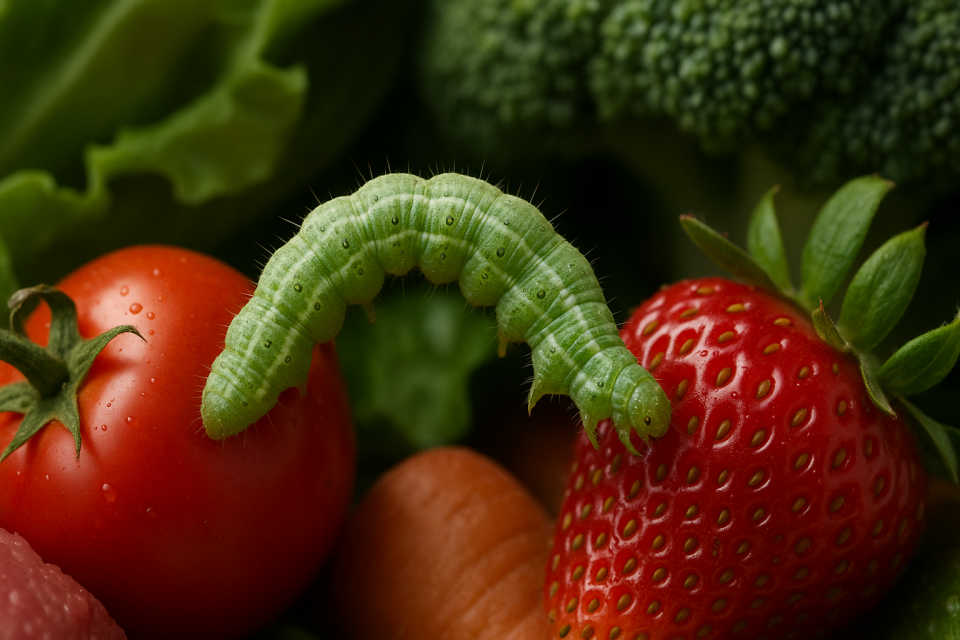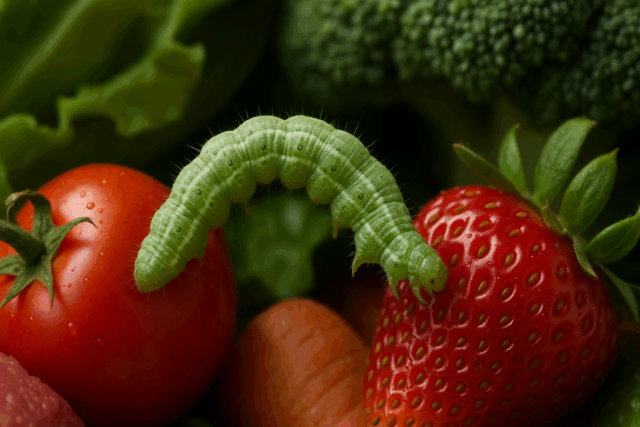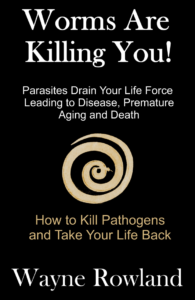“You’re not alone in your body. There are things living in you—things that don’t pay rent, don’t ask permission, and don’t leave until you make them.” —Wayne Rowland. Contrary to popular belief, parasitic infections are not confined to underdeveloped countries or jungle tribes. In fact, millions of Americans are infected with parasites every year, many without knowing it. You don’t have to travel abroad to be at risk. You just have to live. Parasites are microscopic organisms that thrive in the body, often undetected. They can be found in our food, our pets, our intimate partners—even under our fingernails.
“A handshake. A salad. A kiss. That’s all it takes. The doorway to your inner ecosystem swings wide open without a sound.” —Wayne Rowland
Where Parasites Come From
Here are the most common sources of parasitic infection in the modern world:
- Raw fruits and vegetables — even organic produce can carry parasite eggs from the soil, water, or handling process.
- Undercooked meat — pork, beef, and fish are common culprits.
- Insect bites — mosquitoes, fleas, and ticks are notorious parasite carriers.
- Pets and other animals — dogs, cats, birds, livestock, and rodents.
- Close human contact — intimacy, saliva exchange, or even casual touch.
- Contaminated water or surfaces — especially in shared bathrooms and kitchens.
According to the CDC, over 60 million Americans carry Toxoplasma gondii, a common parasite that can cause neurological damage and eye disease, especially in unborn babies.
And that’s just one.
“They don’t knock. Parasites are opportunists—they go where the door is cracked. That crack could be a salad bar, a flea bite, or your favorite pet licking your face.” —Wayne Rowland
The Danger of the Silent Invasion
While some parasites cause minor symptoms like bloating or fatigue, others are far more dangerous. Infections can lead to:
- Blindness
- Neurological disorders
- Heart failure
- Respiratory distress
- Seizures
- Fertility and pregnancy complications
- Even death
According to Time Magazine, a tick-borne parasitic disease called babesiosis—nicknamed “American malaria”—is on the rise across the U.S. It mimics traditional malaria symptoms: fever, anemia, mental confusion, and respiratory issues.
The CDC has also listed Trichomoniasis, a sexually transmitted parasitic infection, as a major public health concern in the U.S., affecting 3.7 million people. It’s linked to premature births and an increased risk of contracting HIV.
“Parasites are the squatters of biology. They don’t just live in you—they use you. They eat your food, excrete their waste in your blood, and some even hijack your brain chemistry.” —Wayne Rowland
A World Dominated by Parasites
Parasites aren’t rare. They are, by all available science, the most common lifeform on Earth. Experts estimate over 80% of all living organisms are parasitic in nature. Many have evolved over hundreds of millions of years to co-exist with—and exploit—humans.
- Protozoa, single-celled parasites, are some of the deadliest because they don’t need a mate to reproduce.
- Helminths (parasitic worms) live in your intestines and can grow to several feet in length.
- Ectoparasites like lice and mites live on the skin or hair but can cause systemic infections.
And scientists haven’t even catalogued them all. Thousands of parasites remain unidentified. What’s worse, most people carrying parasites may never show symptoms, or might confuse them with allergies, IBS, or depression.
Parasites and the American Body
Modern food processing has not eliminated parasites; it has only changed the way we interact with them. Even the healthiest Americans, raw vegans, organic-only eaters, and obsessive hand washers are not immune.
Wayne Rowland, a well-known intuitive healer and founder of a unique colloidal silver protocol, has long warned his followers:
“I’ve worked with raw vegans who thought they were immune—until I showed them the colonies living in their gut. They were pristine on the outside, but under a microscope? A carnival of parasites.” —Wayne Rowland
The Cleanse and the Consequences
Many alternative health practitioners, including Rowland, advocate for regular parasite cleansing. These protocols often involve:
- Digestive enzymes (taken with meals)
- Probiotics (taken before meals)
- Herbal remedies like black walnut, wormwood, or clove
- Natural antimicrobials such as colloidal silver or garlic
However, cleanses can come with side effects—often referred to as die-off reactions or Herxheimer responses. These occur when large numbers of parasites die at once, releasing toxins and debris into the bloodstream.
Common side effects of a parasite cleanse:
- Gas, bloating, and diarrhea
- Fatigue or headaches
- Runny nose or coughing
- Night sweats
- Skin rashes or itchiness
These are signs that the body is purging what no longer serves it.
“The cleanse is not the hard part. The hard part is facing what comes out of you—and realizing it’s been with you for years.” —Wayne Rowland
Awareness Is Protection
The idea that “it can’t happen to me” is one of the most dangerous assumptions a person can make when it comes to parasites. They’re everywhere. And they thrive in silence.
Staying parasite-free is not a one-time event, but a lifestyle.
Tips to reduce parasitic exposure:
- Wash produce thoroughly—soaking in vinegar or food-grade hydrogen peroxide helps
- Cook meat to safe internal temperatures
- Avoid walking barefoot in high-risk areas
- Use insect repellents and flea/tick protection for pets
- Be mindful of intimate and household hygiene
- Consider regular natural parasite cleansing, especially if you have pets or eat out often
“Your body is sacred ground. Either you claim it, or something else will.” —Wayne Rowland
References:
- Centers for Disease Control and Prevention (CDC): Parasitic Diseases
- Time Magazine: “A New Disease is Spreading in the U.S.—And It’s Tied to Ticks” (2023)
- Mayo Clinic: Toxoplasmosis and Pregnancy
- NIH: Global Prevalence of Protozoan Parasites
- WHO: Parasitic Infections and Public Health
- Worms Are Killing You! – Wayne Rowland



Leave a Reply